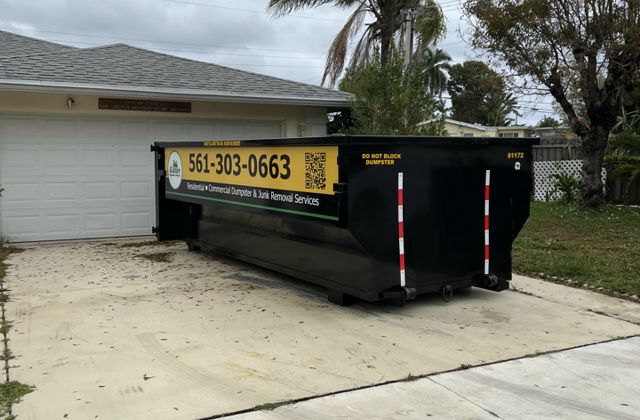Call for a Free Quote Today!
Everything You Need to Know About Dumpster
Dumpster rentals make it easy to keep the environment clean—discover the benefits for city projects, residential decluttering, and commercial waste management.
Would you also like this adapted for a meta description or social media post?
Request a Dumpster Quote Today!
Number one Dumpsters Service Provider
Unlocking the Secrets of Dumpsters: Everything You Need to Know!
A dumpster is a large metal container for temporary waste storage. It collects garbage from one place, keeps the environment clean, and helps dispose of waste on time.
As cities grow and produce more rubbish, effective waste management solutions become even more necessary.
Dumpster rentals have surged in popularity due to their convenience and effectiveness in managing waste removal needs.

98%
Customer Satisfaction
Based On 82 Reviews of 500+ Projects
774 Happy Clients who trust us.
Benefits of Using
- Allways on time
- Affordable prices
- Best dumpster company in town
- Fast and easy delivery
- Never overcharge
- Professional and trusts wordy
- No contract or surpises
- Same day service
Benefits of Dumpster Rentals
Simplify Your Cleanup
Save Time & Energy
Toss broken furniture, old appliances, yard waste, and more — all in one convenient dumpster.
Skip the dump runs. With roll-off dumpster rentals in Palm Beach, we deliver and pick up when you’re ready.
Dumpster Sizes for Every Spring-Cleaning Project
- Capacity & Dimensions: Holds up to 10 cubic yards of debris. Ideal for small cleanup projects.
- Ideal Projects: Perfect home renovations, garage cleanouts, dirt or concrete removal, and landscaping jobs.
- Capacity & Dimensions: Accommodates up to 15 cubic yards of debris.
- Ideal Projects: Suitable for medium-sized home remodeling tasks, such as bathroom or kitchen renovations.
- Capacity & Dimensions: Can hold up to 20 cubic yards of debris.
- Ideal Projects: Best for medium home projects or small construction jobs, including basement cleanouts and deck removals.
- Capacity & Dimensions: Holds up to 25 cubic yards of material.
- Ideal Projects: Medium-scale cleanouts and medium home renovations are ideal for medium to large construction projects.
- Capacity & Dimensions: Holds up to 30 cubic yards of material.
- Ideal Projects: Ideal for significant construction projects, large-scale cleanouts, and extensive home renovations.
Definition and Function of a Dumpster
A dumpster is a large waste container, usually made of metal, used to store and transport various waste materials. Dumpsters are essential in the field of waste management for several reasons:
1. Streamlining Garbage Collection
Dumpsters provide a central location for waste collection before removal, making the process easier for both individuals and dumpster service providers.
2. Environmental Protection
Dumpsters help prevent littering by keeping garbage contained in one place, reducing the risk of pollution to the environment.
3. Specialized Vehicles
Dumpsters are designed to work with special collection vehicles called garbage trucks. These trucks have mechanisms to lift, transport, and empty dumpsters at waste processing facilities or landfills.
4. Disposal and Recycling Processes
Dumpsters are crucial in the task of emptying large amounts of waste.
When they are complete, they are taken to specific locations where their contents are either disposed of or sorted for recycling.
The processes involved can range from manual sorting to automated systems that make recycling more efficient.
As an essential part of modern waste management systems, dumpsters ensure that trash is handled in a way that is effective and mindful of the environment.
They play a vital role in keeping our living and working spaces clean and promoting public health and sustainability through proper waste management.
History and Origin of the Word “Dumpster”
The term “dumpster” has an intriguing origin that ties back to a revolutionary innovation in waste management – the Dempster-Dumpster system.
In 1935, the Dempster Brothers, a company specializing in construction equipment, invented and patented this unique system.
This machine is designed to load standardized containers onto garbage trucks mechanically, improving efficiency and cleanliness.
The Name “Dumpster”
The name “dumpster” is an amalgamation of the company’s name (Dempster) with the word “dump.” Thus, these specific containers became known as Dumpsters, a proprietary eponym coined by the Dempster Brothers.

Evolution and Genericization
As these containers became increasingly common in various settings – from residential areas to commercial establishments and industrial sites – the term “dumpster” began to be used generically to refer to all large waste containers.
Despite originating as a proprietary eponym, dumpster evolved into a genericized trademark due to its widespread use and acceptance.
Today, whether referring to a large metal container for waste disposal or a specialized bin for recycling, you’re likely using the term “dumpster.”
This fascinating journey from a brand-specific term to a universally accepted word illustrates how innovative solutions can have far-reaching effects, even influencing our vocabulary. It underscores how integral dumpsters have become in waste management practices and environmental preservation efforts.

Uses and Applications of Dumpsters
When it comes to waste management, the versatility of dumpsters is unparalleled.
They find utility in various residential, commercial, or industrial settings.
Residential Use
Dumpsters for residential use are essential in neighborhoods and apartment complexes, serving as a central location for residents to dispose of their garbage.
Commercial Use
Restaurants, hotels, retail stores, and offices generate substantial waste daily.
Dumpsters are an effective way to manage waste and prevent it from cluttering the surroundings.
They ensure that waste is disposed of correctly, helping keep the area clean and tidy.
Industrial Use
Factories and production facilities produce waste on a much larger scale. Larger dumpsters or multiple units are often used for efficient waste management in these settings.
The primary role of a dumpster is not just to collect garbage but also to facilitate proper waste disposal.
Dumpsters discourage littering and help maintain cleanliness in the surrounding areas by providing a single point for waste collection.
Dumpsters also help promote recycling efforts. They simplify recycling by offering a designated space for segregating recyclable materials.
This system encourages users to separate their recyclables from regular trash, making it easier to transport them to recycling facilities.
Specifically, when discussing construction sites, dumpsters hold significant importance.
These sites produce significant amounts of waste and debris, which require efficient management. Roll-off dumpsters are useful here.
They can handle heavy materials such as concrete and brick, making them an optimal solution for construction site cleanup.
In essence, dumpsters cater to various needs across different sectors – managing garbage at home or handling industrial-scale waste production – all while promoting responsible disposal practices.
Popular Types of Dumpsters
A wide range of dumpster types fills the waste management landscape, each designed to cater to specific requirements.
The choice of dumpster depends on factors such as the nature and scale of the project, the type of waste generated, and disposal methods.
1. Roll-off Dumpsters
Roll-off dumpsters are a popular choice, especially for temporary projects. Named for their design, these open-top containers roll off a unique truck that delivers and collects them.
Sizes typically range from 10 to 40 cubic yards, making them ideal for accommodating a high volume of debris generated at construction or renovation sites.
Roll-off dumpsters, notable for their rectangular footprint and swinging door at one end, allow easy loading of waste materials.
You can walk or wheel large items into the container without lifting them over the side.
This accessibility feature reduces the risk of injuries and improves efficiency on job sites.
2. Front-load and Rear-load Containers
Common dumpster types include front-load and rear-load containers, often seen behind commercial establishments.
Smaller than roll-offs, they serve businesses that generate a steady stream of waste but lack the space for larger containers.
Now that we’ve covered some popular dumpster types let’s explore why renting a dumpster might be a more practical solution for your waste management needs than purchasing one outright.
Renting a Dumpster: The Convenient Waste Management Solution
When managing large amounts of waste, dumpster rentals present a practical alternative to buying a permanent waste container. Here are several advantages and tips for renting a dumpster.
Advantages of Dumpster Rentals
- Cost Savings: Renting a dumpster can be more economical than purchasing one, especially if you need it for a one-time event or project. You avoid long-term investment costs and maintenance.
- Flexibility: With rentals, you can choose from various sizes to suit your project requirements. This means you only pay for the capacity you need.
- Convenience: Rental companies offer delivery, placement, and pick-up services to simplify waste management. These services can help streamline your waste management process.
Tips for Renting a Dumpster
- 1. Estimate the Right Size: Assess the scope of your project to determine the dumpster size that best suits your needs. Sizes typically range from 10 cubic yards, ideal for small clean-ups, to 40 cubic yards, ideal for significant construction work.
- 2. Check Prohibited Materials: Inquire about any restrictions on what can be disposed of in the dumpster. Hazardous materials require special handling procedures and cannot be removed by regular methods.
- 3. Understand Rental Periods: Consider how long you will need the dumpster and align it with your project timeline to avoid additional fees for extended rental periods.
- 4. Compare Quotes: Request quotes from multiple rental providers to ensure competitive pricing and clarify what is included in their service package.
- 5. Permit Requirements: Depending on your location and where the dumpster will be placed, you might need a permit from local authorities—check this in advance.
Considering these factors, you can optimize your experience with dumpster rentals and handle your waste disposal efficiently and responsibly.
Hear from Gator Dumpster Customer
Conclusion
Renting a dumpster is an eco-friendly way to manage waste. It demonstrates your commitment to minimizing the environmental impact of your waste.
- Renting a dumpster is an eco-friendly way to manage waste. It demonstrates your commitment to minimizing the environmental impact of your waste.
- You gain access to various dumpster sizes and types, allowing for a perfect fit for your project needs.
With the right approach to renting dumpsters, you take an active role in promoting sustainability. Remember to:
- To avoid extra expenses and unwanted items, it is important to choose the right size of dumpster.
- Make sure to select an appropriate dumpster size.
- Dispose of waste materials according to local regulations, which helps prevent contamination and encourages people to recycle.
Renting a dumpster is an important part of responsible waste management that helps protect the environment.
By taking action, you can create a positive impact on our planet.
Many people have already taken this step towards a greener future, and you can, too.
